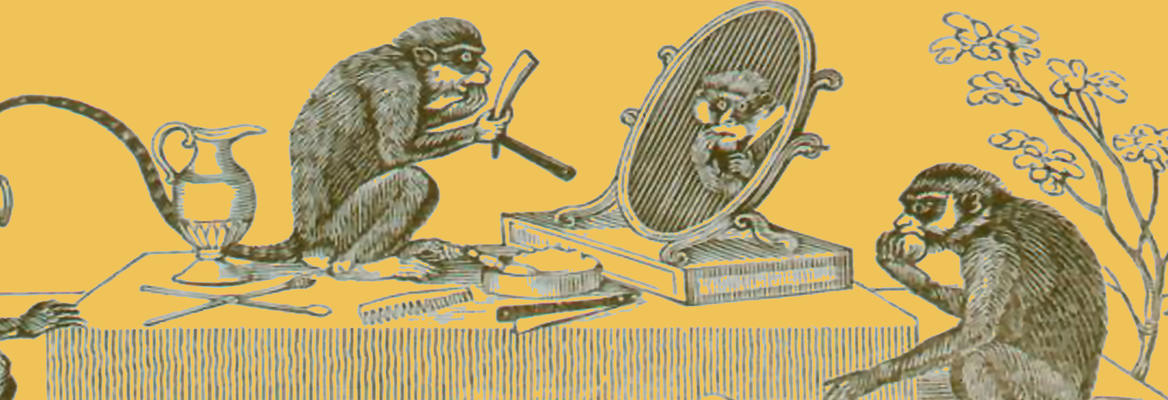Are we animals? This question, seemingly simple, delves into our many theories of personal identity. While our daily lives define us as human beings, the theory of "animalism" challenges this perspective. Philosopher Eric Olson argues that our fundamental identity aligns with being biological organisms within the animal kingdom. This puts the existence of a ‘human’ essence in question and has implications for life after death, consciousness transfer, transhumanism and even environmental responsibility.
1.
What are we? Human beings, of course. We’re also parents, friends, readers of online articles, and much more. And we’re animals: biological organisms of the animal kingdom. That may seem rather obvious. Our planet is home to some eight billion members of the primate species Homo sapiens. And those animals seem to be us. When you see yourself or someone else, you see an animal. Wherever that animal goes, you go, and vice versa. We don’t appear to be anything other than these animals.
Philosophers call the claim that we’re animals ‘animalism’. You may be surprised to hear that it’s a minority view in contemporary philosophy. And in fact most of us are at least inclined to believe things that are incompatible with it.
Take, for example, the doctrine of life after death. Billions of people believe (or at least profess to believe) that when we die and are cremated, we nevertheless continue existing in a conscious state. We’re resurrected in the next world, or reborn in this one. That’s not consistent with our being animals. When an animal is burnt to ashes, that’s the end of it. To say that it might continue existing and remain conscious is like saying that a manuscript burnt to ashes might continue existing and remain legible. An animal cannot have life after death. If we have life after death, we cannot be animals.
You may not believe in life after death. But many nonreligious people believe in the possibility of ‘uploading’. Imagine that all the psychological information encoded in your brain is read off by some sort of scan. (This, we may imagine, destroys or erases the brain.) The information is made into a digital file and transferred to a computer. It’s then used to program the computer so as to create a thinking, conscious being there: someone psychologically just like you were when you were scanned, or at least as much like you as a purely digital person could be. Even if this will never be technologically feasible, the thought goes, it could be done, if only we knew how. And maybe this process would not merely create a psychological duplicate of you in the computer, but would transfer you yourself from your animal body to the digital realm.
___
if you have a property that no animal has, you’re not an animal. The same, in fact, goes for life after death: if it’s even possible for us to have it, then we’re not animals
___





















Join the conversation